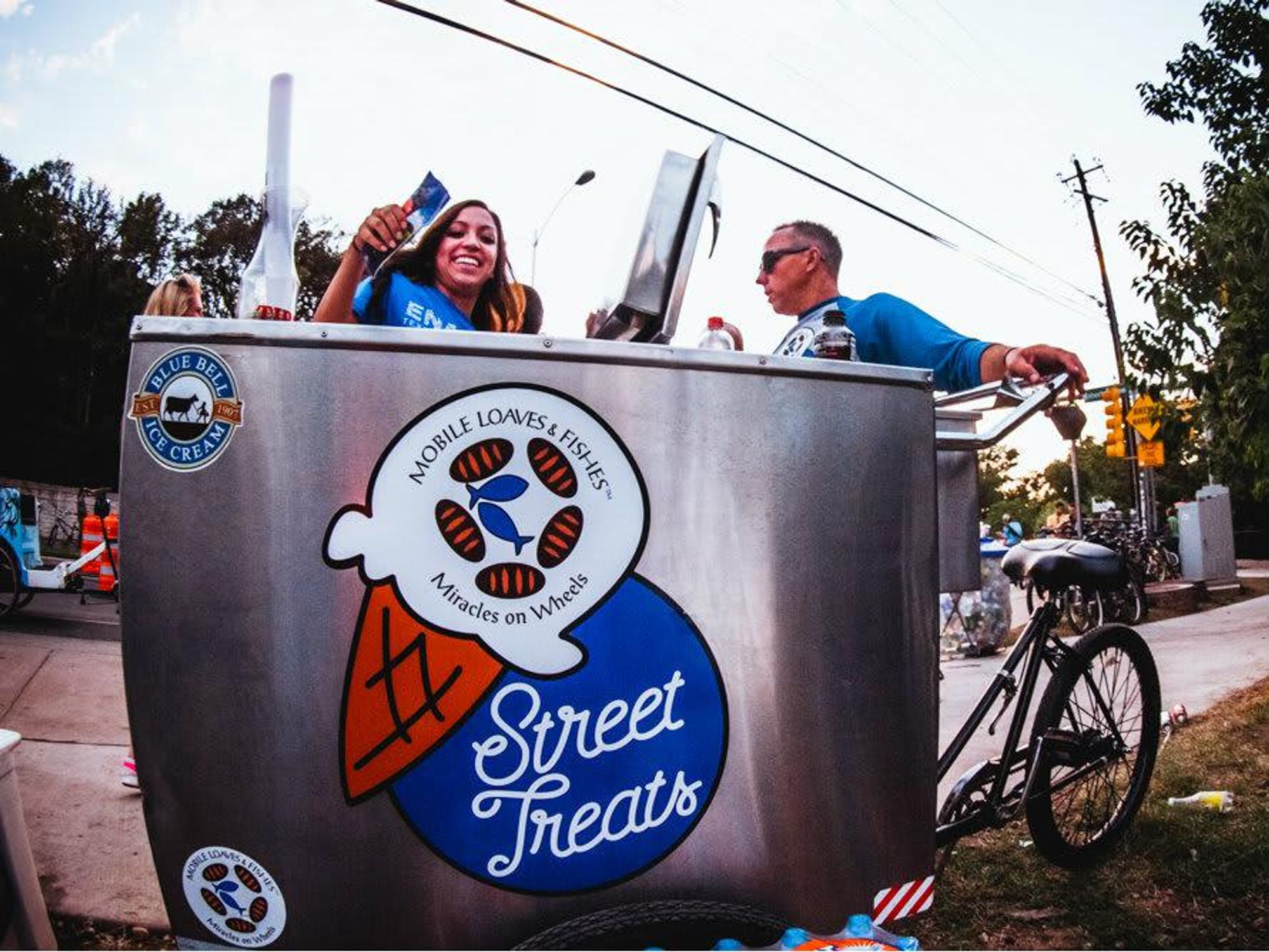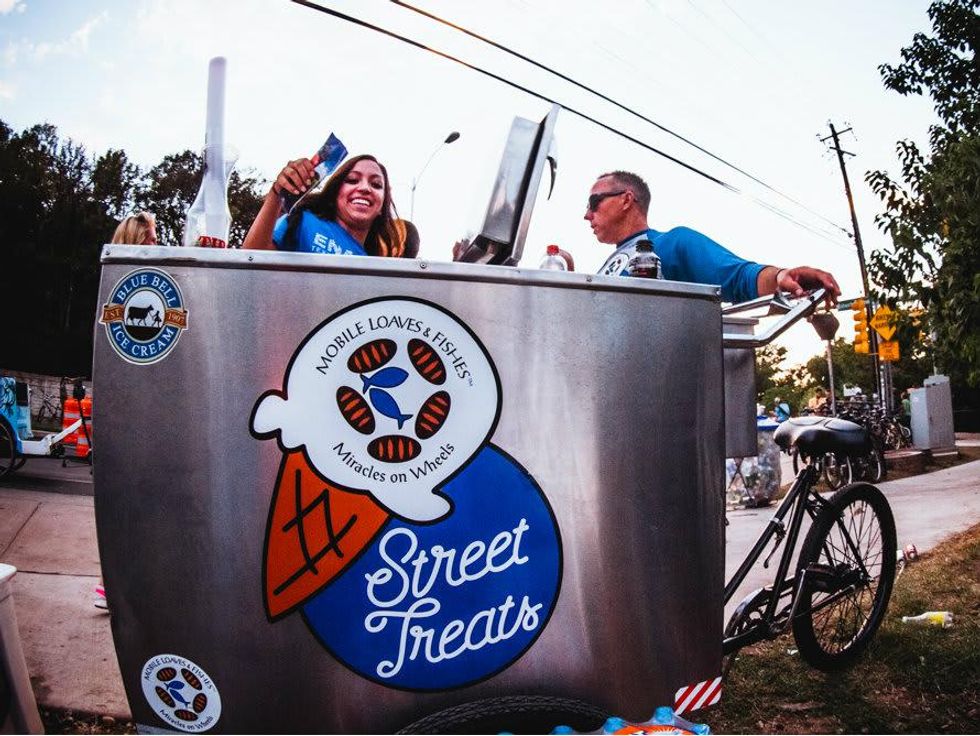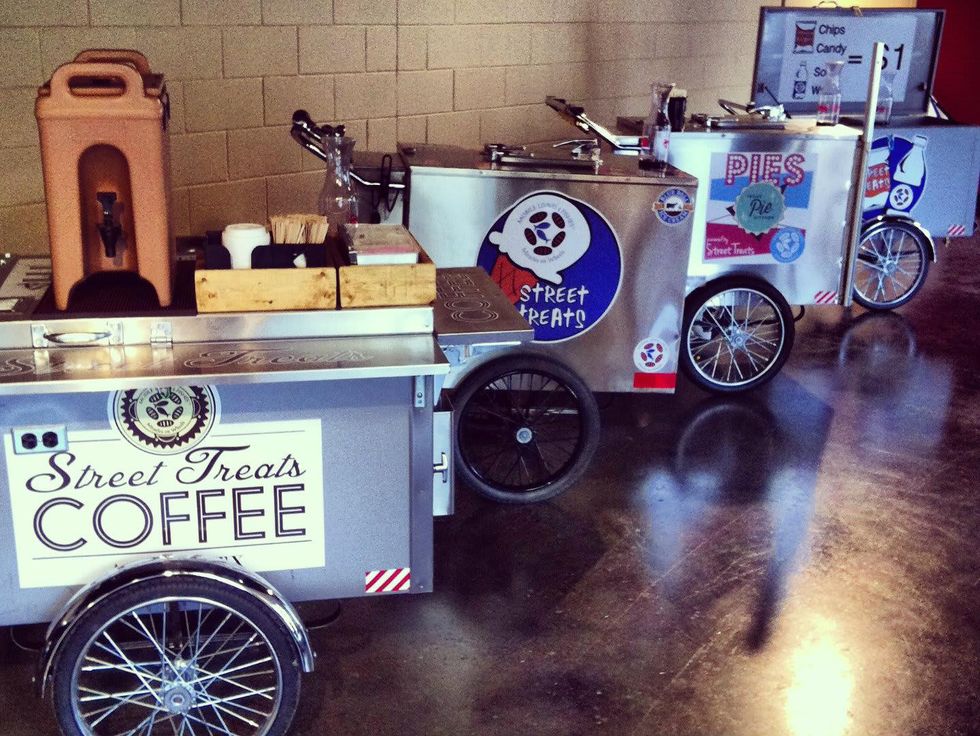Street Treats at ACL Fest
Street Treats food carts offer Austin's homeless an opportunity to earn income at ACL Fest

Attendees at this weekend’s second act of ACL Festival have a choice of nearly 40 food vendors offering everything from veggie burgers to pork belly banh mi sandwiches.
In areas near festival entrances, they can also buy $1 Blue Bell treats — with a twist. The shiny bicycle carts with brightly painted logos reading “Street Treats” are owned by Mobile Loaves & Fishes, a social outreach ministry that has been serving homeless people in Austin for 15 years. The vendors are those homeless people.
“Tied in with our housing model, [homeless vendors] can take that money and eventually get off the street for good.” — Nate Schleuter, Mobile Loaves & Fishes
In addition to those two carts, invited in by festival organizer C3, there will be a water and snack cart at Republic Park, where shuttles pick up and drop off, and another roaming Barton Springs Road. Those will serve thirsty festgoers at the request of the city of Austin, says Nate Schlueter, director of MLF’s Relationships and Opportunities Allowing for Dignity & Security program, or ROADS.
Everything sold from the carts costs $1, and the men and women operating them keep all profit and tips. At the first ACL Fest weekend, Street Treats vendors earned upward of $25 a hour, Schlueter says, with some making as much as $42 an hour.
According to Schlueter, the top two reasons people are homeless are a catastrophic incident, such as job loss or illness, and a lack of opportunity, including the inability to secure employment after a catastrophic event. “It’s hard to find a job when you don’t have a place to shower,” he explains. The Street Treats program doesn’t employ homeless people; it gives them opportunities to earn their own income directly. Perhaps just as important, it creates the opportunity for a homeless person to have a positive interaction with others, rather than panhandling. “The vendor gets all the profit and tips; they pay the cost of the items sold, keep the rest and have access to a first-class vending bike. They are their own minibusiness owner,” he says.
Street Treats vendors are selected by MLF staff “through relationships we have built with individuals through years of serving them,” Schlueter says. “They are people we know who are on the streets, people we think would be great at it, would appreciate the opportunity and take it seriously.” MLF provides uniforms — which include distinctive, cheery red-and-white striped shirts — and cleans them daily.
Street Treats first rolled out at SXSW; the carts were also at other events, including the Pecan Street Festival, before coming to ACL Fest. The carts and vendors are also available for private events.
Ultimately, Schlueter says, the goal is to have people operating Street Treats on a regular basis. To do that, though, the organization needs to secure a permanent location, probably somewhere between downtown and the university. MLF is currently in the middle of a major project, Community First!, an RV park that provides permanent housing as well as training, gardening and other programs aimed at helping people get off the streets for good. Once that is accomplished, Schlueter says, MLF will work on raising money for a location where 20 Street Treats carts could operate every day.
“Residents of our RV park could take a bus to the location and do this as a regular source of income,“ he says.
There have been no problems reported with the Street Treat program; in fact, if watching one of its vendors in action is any indication, it looks like a win for everyone. Blue Bell ice cream, a bottle of water or a bag of chips for $1 for the customer, income for the seller and both can walk away feeling good.
“A guy gets to come in and get dry, put a clean shirt on and go out and earn the money for a room or a clean tent that night,” Schlueter says. “Tied in with our housing model, they can take that money and eventually get permanent housing and get off the street for good.”



 SOAP Laundry Lounge customers can catch up on emails while handling their chores.Photo courtesy of SOAP Laundry Lounge
SOAP Laundry Lounge customers can catch up on emails while handling their chores.Photo courtesy of SOAP Laundry Lounge SOAP Laundry Lounge has plenty of wide open spaces. Photo courtesy of SOAP Laundry Lounge
SOAP Laundry Lounge has plenty of wide open spaces. Photo courtesy of SOAP Laundry Lounge